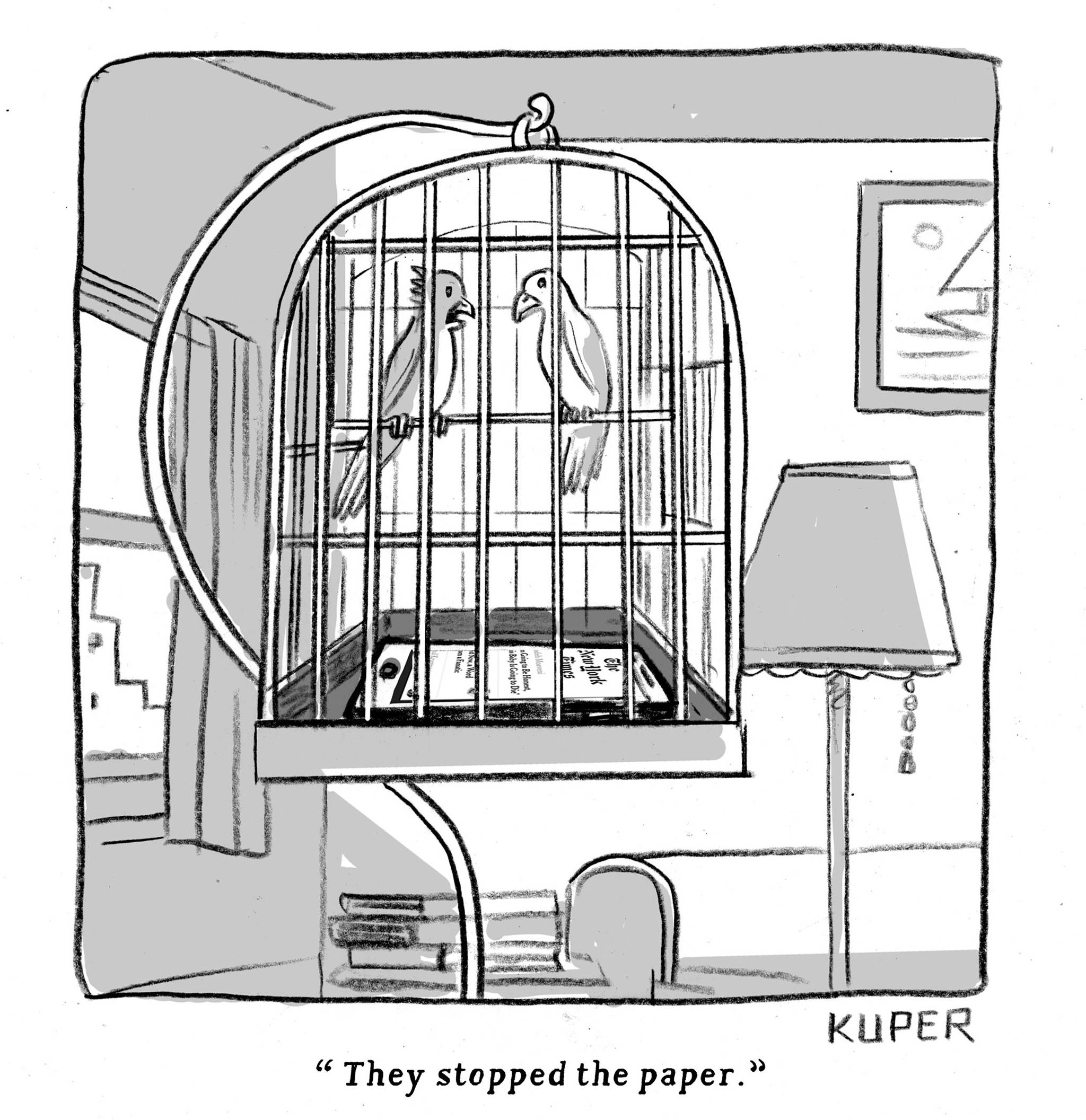Newspapers are meant to report the news, not make it. But count on Tribune Publishing Co. to keep things interesting until the the bitter end.
The owner of the Chicago Tribune, Baltimore Sun and other local U.S. papers will officially pass into the control of hedge fund Alden Global Capital this week after a last-ditch effort to find a white-knight bidder failed and the company’s second-largest shareholder declined to intervene. Biotechnology billionaire Patrick Soon-Shiong owns just shy of 24% of Tribune and was capable of sinking the takeover effort from Alden, which has developed a reputation for ruthless cost cuts in other newsrooms it’s acquired, including the Denver Post. But while a spokeswoman said he abstained from voting on the deal, Soon-Shiong reportedly failed to check the box for abstention and, as such, his ballot was counted as a “yes,” according to the proxy rules. The same spokeswoman said Soon-Shiong viewed his Tribune investment as a passive one.
It all feels like a sad joke. Of course, when Soon-Shiong first acquired a large stake in Tribune in 2016, his involvement was framed quite differently. Tribune issued 4.7 million shares to Soon-Shiong in return for “growth capital” that would support the company’s transformation strategy. It also signed a term sheet for access to machine learning and artificial-intelligence technology from Soon-Shiong’s companies in a bid to find new ways to make money off of journalism amid a slide in advertising dollars. “I grew up in apartheid South Africa,” Soon-Shiong said in a statement at the time. “I believe it is critical to our democracy and to our way of life that we have a strong, vibrant media and that it continues to function as the Fourth Estate.”
And yet here we are, with a deal to sell the company to a hedge fund that seems more interested in laying off journalists and running a tight ship than it does winning Pulitzer Prizes. In the end, the Tribune saga is a story of good intentions colliding with the difficult reality of running a multifaceted newspaper business in the digital age. The company has had many would-be saviors over the years. While they have generated their fair share of drama, they all — at one point or another — had high hopes of guiding Tribune and its myriad papers to a healthier existence. But they all failed.
First, there was Michael Ferro, the technology investor who acquired a large stake in 2016. “I see tremendous upside to create value and put Tribune Publishing at the forefront of technology and content to benefit journalists and shareholders,” he said at the time. Soon after, Gannett Co. lobbed in a takeover bid that Ferro fought aggressively. This included issuing the shares to Soon-Shiong, whose abrupt emergence at the top of the shareholder register significantly complicated things for Gannett. The AI push resulted in some rather comical promotional videos but little else; it certainly didn’t usher in the reinvention of journalism. This was partly because Soon-Shiong had a falling out with the company and found himself booted off the board. Eventually, he patched things up well enough to purchase the Los Angeles Times from Tribune for $500 million in 2018. Shortly after that deal was reached, Ferro stepped down amid accusations of inappropriate sexual advances. Ferro eventually sold his stake to Alden in 2019 and set the current takeover pursuit in motion.
Another potential savior for Tribune emerged earlier this year when hotel magnate Stewart W. Bainum Jr. tried to put together a rival bid with Hansjoerg Wyss, the billionaire environmental philanthropist. Wyss told The New York Times that he was inspired to safeguard the future of journalism after reading an essay last year from two Chicago Tribune reporters about the threat posed by Alden ownership. He didn’t want to see another truth-telling newspaper “going down the drain,” he said. Tribune deemed an offer from Bainum and Wyss as reasonably likely to lead to a superior proposal and opened the door to negotiations. Another investor, Mason Slaine, also expressed interest in joining the bid, with an eye toward acquiring key Tribune newspapers in his home state of Florida. But the effort fizzled after Wyss got cold feet. He had intended to turn the Chicago Tribune into a national paper, but the due diligence process indicated that would be challenging, a person familiar with the matter told Bloomberg News.
A big part of the problem seems to be that Tribune is not a single newspaper but rather a conglomerate of newspapers. Each has its own unique traits and complications and yet remains linked to the other publications through intricate cost-sharing agreements that prop up the overall company’s slim margins. Tribune didn’t need one billionaire savior; it needed several and at the same time. Amazon.com Inc. founder Jeff Bezos’ purchase of The Washington Post was more simple and straightforward, as was Soon-Shiong’s acquisition of the L.A. Times and regional affiliates. That’s not to say those deals have been easy undertakings. The L.A. Times has faced criticism from its staff over a lack of diversity in its ranks, culture clashes with new hires and alleged ethical lapses. But even Warren Buffett struggled to manage an amalgamation of local newspapers, selling his collection of 31 publications in 2020 for $140 million to Lee Enterprises.
There is a reason the conglomerate model fell out of fashion in most other industries. It complicates the job of executives, muddles the financial picture for investors and can starve businesses of the capital they need to thrive. It can also seal the fate of one of the country’s most storied newspaper publishers.


